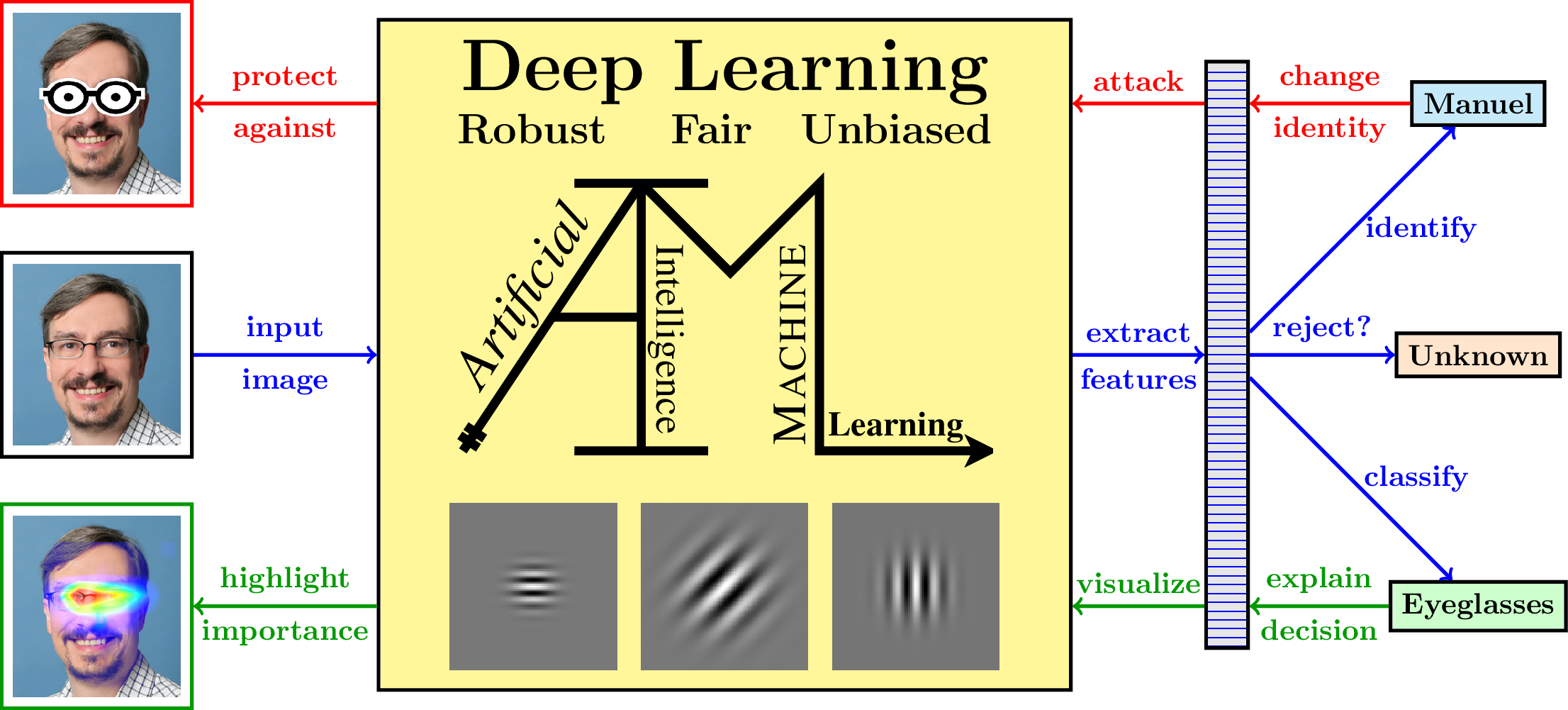Artificial Intelligence and Machine Learning
The Team
The Artificial Intelligence and Machine Learning group has recently (July 2020) been created and is currently growing. Please see the list of People. Additionally, the group is hosting several Bachelor and Master theses as well as a few Master Projects, and is also involved in Teaching. The AIML group is open for collaborations within the University of Zurich, within Switzerland and worldwide. More details can be found in Projects and Collaborations.
The Background
Modern machine learning algorithms, i.e., deep neural networks have changed the way, most researcher approach problems nowadays. In traditional machine learning techniques, a good understanding of the problem was required, as well as a proper selection of the utilized features, tools and measures. Small amounts of data could be processed to achieve reasonably good results, which were usually readily interpretable by humans.
With deep learning, this has changed dramatically. Deep networks take as inputs raw data, so no feature selection is required anymore. Superior results can be obtained by simply feeding standard networks with huge amounts of data, but unfortunately these networks are just black boxes and no-one really understands in detail what is happening inside of them. Therefore, the results are not easily interpretable and effects like adversarial samples -- imperceptibly tiny modifications of the input can drastically change the output of the network -- are the consequence.
Another issue with many classification networks is that they cannot distinguish between known and unknown objects. While the networks are very well to tell apart the different classes that they were trained to classify, they assign unknown objects -- objects of classes that they have not been seen during training -- one of the known classes, usually with very high confidence.
The Mission
One goal of this group is to join the knowledge gained in the decades before the deep learning boom, i.e., traditional feature extraction and machine learning techniques with the indispensable power of deep learning. We hope that with this, we can bring back more trust to the deep networks by making them more interpretable, at least a little bit more.
Another goal is to bring the ability to say I Don't know to the networks. Therewith, unknown inputs can be detected as such, and possibly (semi-automatically) labeled and added to the training set, so that later objects of this class can be identified. The group investigates on techniques to incorporate the detection of unknown into multi-class classifiers.
While other applications are also researched by the group, a main focus is laid on improving automatic face recognition, i.e., recognizing people from their facial images. While in controlled conditions, face recognition technology has been superseded human performance more than a decade ago, recognition in surveillance camera imagery is still in its infancy and needs more attention.
Since deep learning has invaded many fields of research, this group is also meant to support other research groups and we are open to collaborate.
Internships for External Students
Due to the high workload and active collaborations, the AIML group is generally not hosting internships or projects for students at Bachelor or Master level from universities outside of Switzerland. According requests will be ignored.
